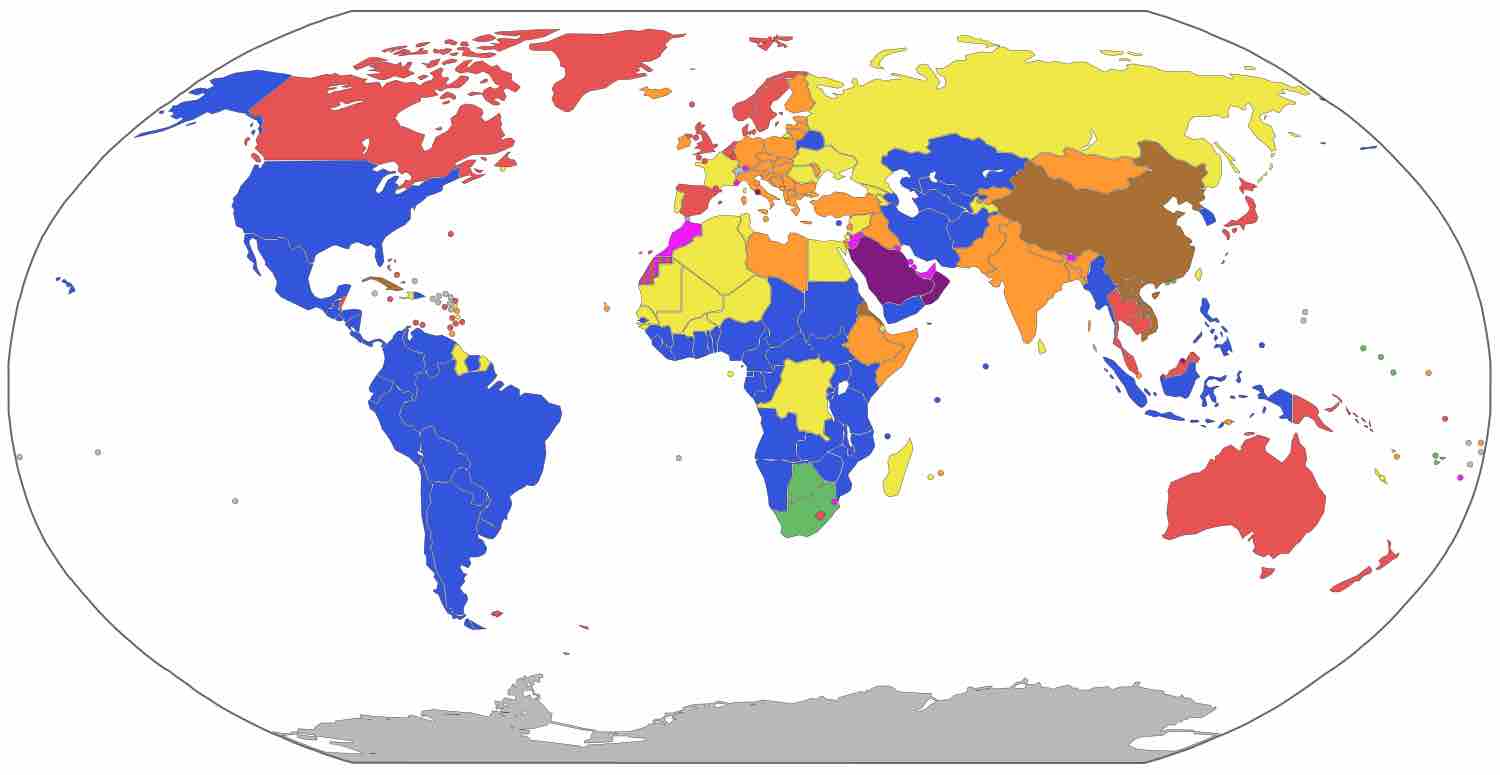Government
Government is the means by which state policy is enforced, as well as the mechanism for determining the policy of the state. A form of government, or form of state governance, refers to the set of political institutions by which a government of a state is organized (synonyms include "regime type" and "system of government"). Governments consist of two broad interplaying elements that generally determine how a government is coded: the power source and the power structure. Power source refers to the individuals and institutions that exercise governing authority over a state and the means by which they obtain their power, while power structure refers to the system by which they are organized.
In the case of its broad definition, government normally consists of legislators, administrators, and arbitrators. Government is the means by which state policy is enforced, as well as the mechanism for determining the policy of the state. States are served by a continuous succession of different governments. Each successive government is composed of a body of individuals who control and exercise control over political decision-making. Their function is to make and enforce laws and arbitrate conflicts. In some societies, this group is often a self-perpetuating or hereditary class. In other societies, such as democracies, the political roles remain, but there is frequent turnover of the people actually filling the positions .

Countries of the World, by Type of Government in 2011
This map shows all the countries of the word, colored according to their type of government. Blue represents full presidential republics, while green and yellow are presidential republics with less powerful presidents. Orange represents parliamentary republics. Red and pink are parliamentary constitutional monarchies, and purple represents absolute monarchies. Brown represents single-party republics, green shows countries where government has been suspended (e.g., military dictatorships), and grey countries do not fit any of the above categories.
Forms of Government
Governments with Aristarchy attributes are traditionally ruled by the "best" people. Aristocracy refers to the rule by elite citizens; a system of governance in which a person who rules in an aristocracy is an aristocrat. It has come to mean rule by "the aristocracy" who are people of noble birth. A meritocracy refers to rule by the meritorious; a system of governance where groups are selected on the basis of people's ability, knowledge in a given area, and contributions to society. Finally, a technocracy refers to rule by the educated; a system of governance where people who are skilled or proficient govern in their respective areas of expertise in technology would be in control of all decision making. Doctors, engineers, scientists, professionals and technologists who have knowledge, expertise, or skills, would compose the governing body, instead of politicians, businessmen, and economists.
Governments with autocratic attributes are ruled by one person who has all the power over the people in a country. The Roman Republic made Dictators to lead during times of war. In modern times, an Autocrat's rule is not stopped by any rules of law, constitutions, or other social and political institutions. After World War II, many governments in Latin America, Asia, and Africa were ruled by autocratic governments.
Governments with democratic attributes are most common in the Western world and in some countries of the east. In democracies, all of the people in a country can vote during elections for representatives or political parties that they prefer. The people in democracies can elect representatives who will sit on legislatures such as the Parliament or Congress. Political parties are organizations of people with similar ideas about how a country or region should be governed. Different political parties have different ideas about how the government should handle different problems. Democracy is the government of the people, by the people, for the people.
Governments with monarchic attributes are ruled by a king or a queen who inherits their position from their family, which is often called the "royal family. " There are at two opposing types of monarchies: absolute monarchies and constitutional monarchies. In an absolute monarchy, the ruler has no limits on their wishes or powers. In a constitutional monarchy a ruler's powers are limited by a document called a constitution.
Governments with oligarchic attributes are ruled by a small group of powerful and/or influential people. These people may spread power equally or not equally. An oligarchy is different from a true democracy because very few people are given the chance to change things. An oligarchy does not have to be hereditary or monarchic. An oligarchy does not have one clear ruler, but several powerful people. Some historical examples of oligarchy are the former Union of Soviet Socialist Republics and Apartheid in South Africa. Fictional oligarchic examples include the dystopian society of Oceania displayed in the book Nineteen Eighty-Four, the stratocracy government of Starship Troopers, and the kritarchic "Street Judges" of Judge Dredd.